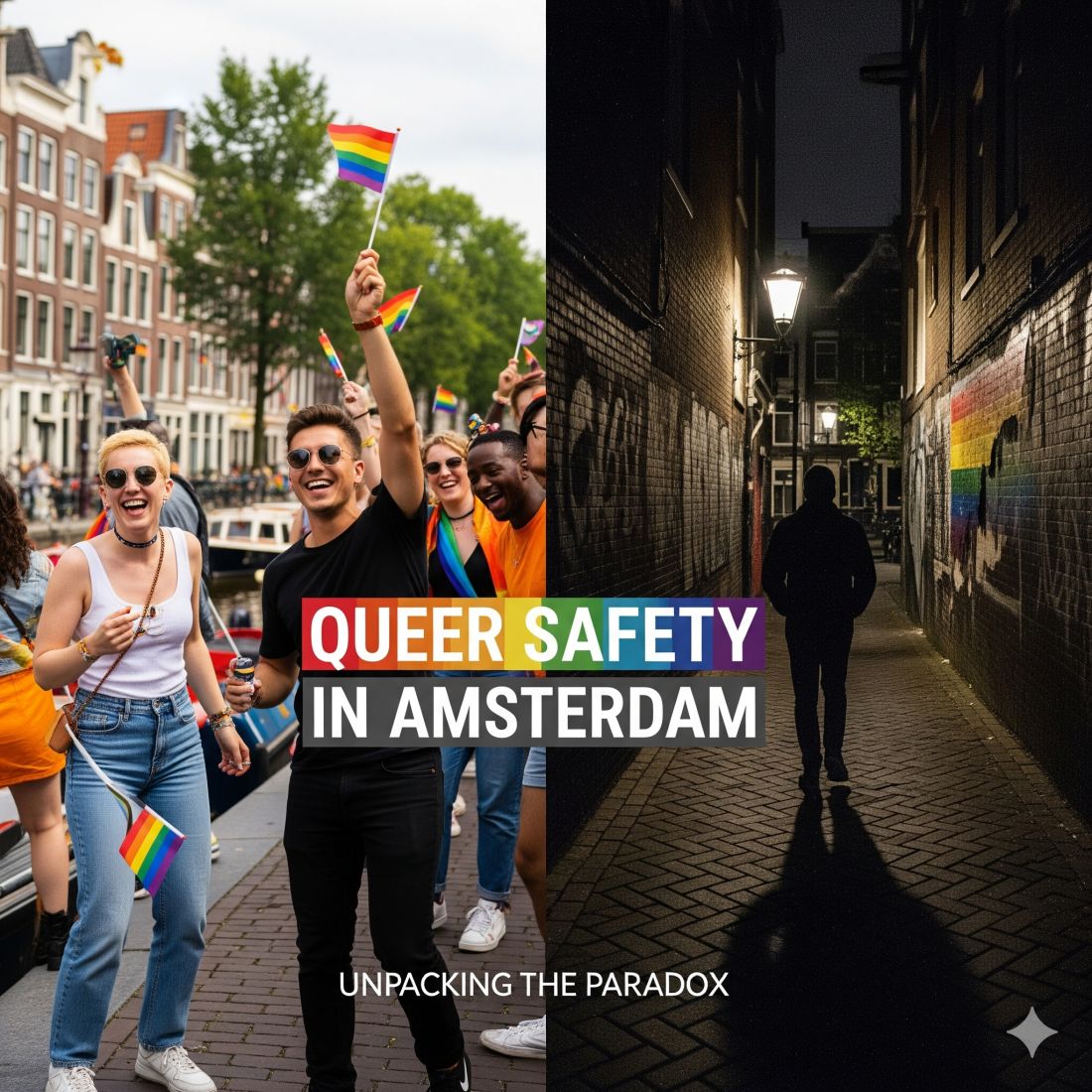Discussion
Living in Amsterdam- Home
- Discussion
- Safety
Join the discussion! We will feature your opinions and story in one of the next episodes.
Fill in the form or send us a voice or a text message at qmeet @ qmeet.nl

Amsterdam has long cultivated a reputation as a welcoming haven for LGBTQ+ individuals, a city celebrated for its progressive history and vibrant queer culture. However, a closer look at recent statistics, coupled with the lived experiences of its LGBTQ+ residents and visitors, reveals a more complex picture. While Amsterdam remains a city with a strong foundation of tolerance and a wealth of resources, issues of safety, discrimination, and declining social acceptance present ongoing challenges.
While specific 2023-2024 crime statistics for anti-LGBTQ+ incidents in Amsterdam are not readily available in public reports, national data from Statistics Netherlands (CBS) provides a crucial insight. Given that a significant portion of the Netherlands' LGBTQ+ population resides in highly urbanized areas like Amsterdam, these figures offer a strong indication of the situation in the capital.
According to the 2023 Safety Monitor from CBS, LGBTQ+ individuals in the Netherlands are disproportionately affected by crime and feelings of unsafety compared to their cisgender, heterosexual counterparts.
Key National Findings (2023):
These statistics underscore a reality where, despite a generally tolerant society, LGBTQ+ individuals are at a heightened risk of experiencing both physical harm and psychological distress.
A particularly troubling trend has been observed among Amsterdam's youth. The GGD Amsterdam's Health Monitor Youth 2023 revealed that only 43% of young people in the Amsterdam region consider homosexuality "normal," a sharp decline from 63% just two years earlier.
Amsterdam's education alderperson, Marjolein Moorman, attributed this to a "conservative wind" blowing through the Netherlands that puts established rights under pressure. In response, the government commissioned research from the University of Amsterdam (UvA). The initial findings suggest that while the decline in Amsterdam is an "obvious exception," it may not represent a national trend, as other studies since 2009 have shown a steady increase in acceptance. The UvA researchers also noted methodological limitations in the GGD studies, making comparisons difficult.
The research identifies a 'complex interplay' of factors influencing these attitudes. Girls tend to have a more positive attitude than boys, and havo/vwo students are more positive than those in vmbo. Religion, along with the influence of parents and peers, also plays a significant role. Further research is underway to investigate the role of social media and the "manosphere" (online anti-feminist communities), though a direct scientific link to declining acceptance of homosexuality has not yet been established.
Opinions and personal accounts from LGBTQ+ individuals in Amsterdam paint a nuanced picture of daily life.
Positive Aspects:
Negative Experiences and Concerns:
In conclusion, the safety of LGBTQ+ people in Amsterdam cannot be described in simple terms. The city's progressive legal framework and historical embrace of diversity provide a strong foundation of support and community. However, this is counterbalanced by concerning national trends in violence and discrimination, a worrying shift in youth attitudes, and the real-world experiences of harassment and prejudice. For many, Amsterdam remains a place of relative safety and freedom, yet the need for continued vigilance, advocacy, and education to address the persistent safety concerns of its LGBTQ+ community is undeniable.